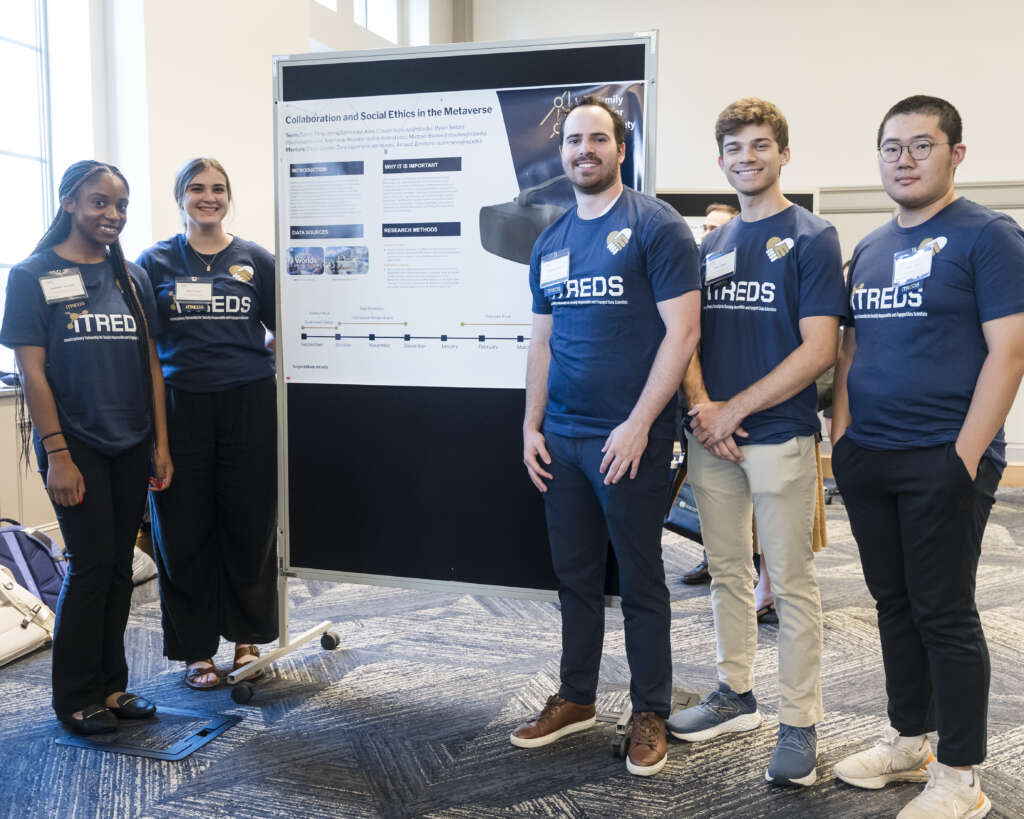
Collaboration and Social Ethics in the Metaverse
Team: Dylan Sellers, Kara Clouse, Sophonie Alcindor, Michael Bsales and Danny Tong
Advisors: Diego Gomez-Zara
Abstract: The Metaverse refers to a virtual shared space that results from the convergence of multiple digital platforms, supported by virtual reality (VR) and augmented reality (AR) devices. As a rapidly evolving technology, the Metaverse has the potential to transform the ways people communicate and work in the future by introducing immersive and interactive social experiences in the virtual world. However, due to the novelty of this technology, there are many significant, yet under-researched ethical implications associated with its use that require careful consideration. Through this research, the team will explore how the Metaverse provides novel ways of social collaboration and what challenges accompany this new technology.
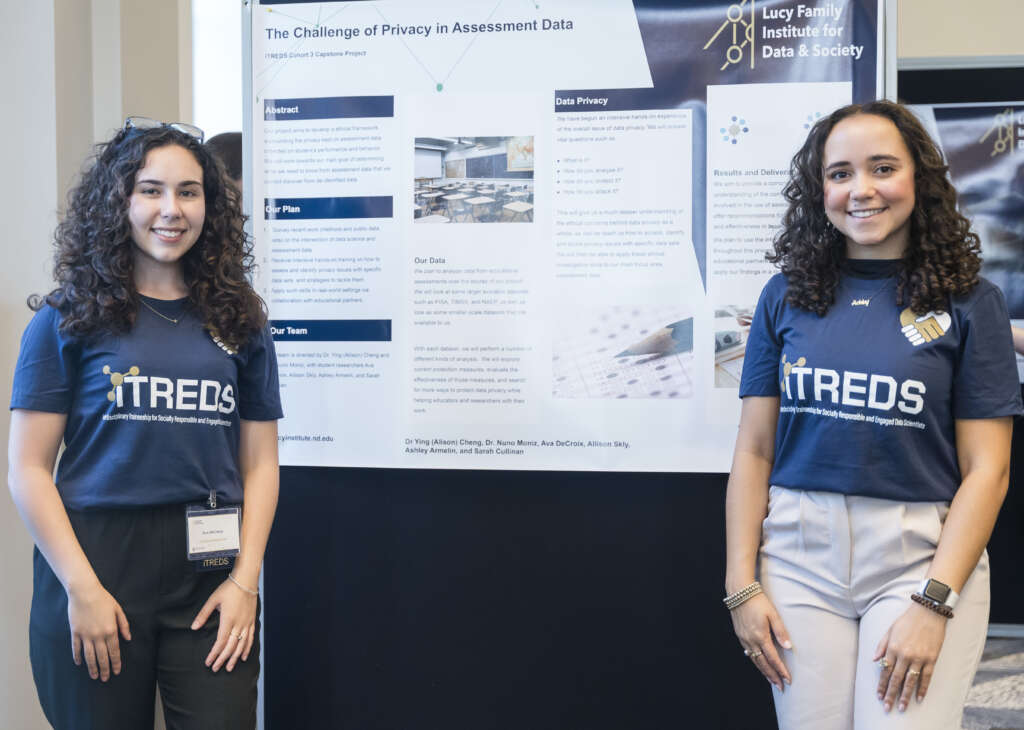
The Challenge of Privacy in Assessment Data
Team: Ava DeCroix, Allison Skly, Ashley Armelin, and Sarah Cullinan
Advisors: Prof. Ying (Alison) Cheng and Prof. Nuno Moniz
Abstract: The project aims to develop an ethical framework surrounding the privacy of assessment data collected on student performance and behavior. The team will analyze assessment data to discover insights that cannot be obtained from de-identified data.
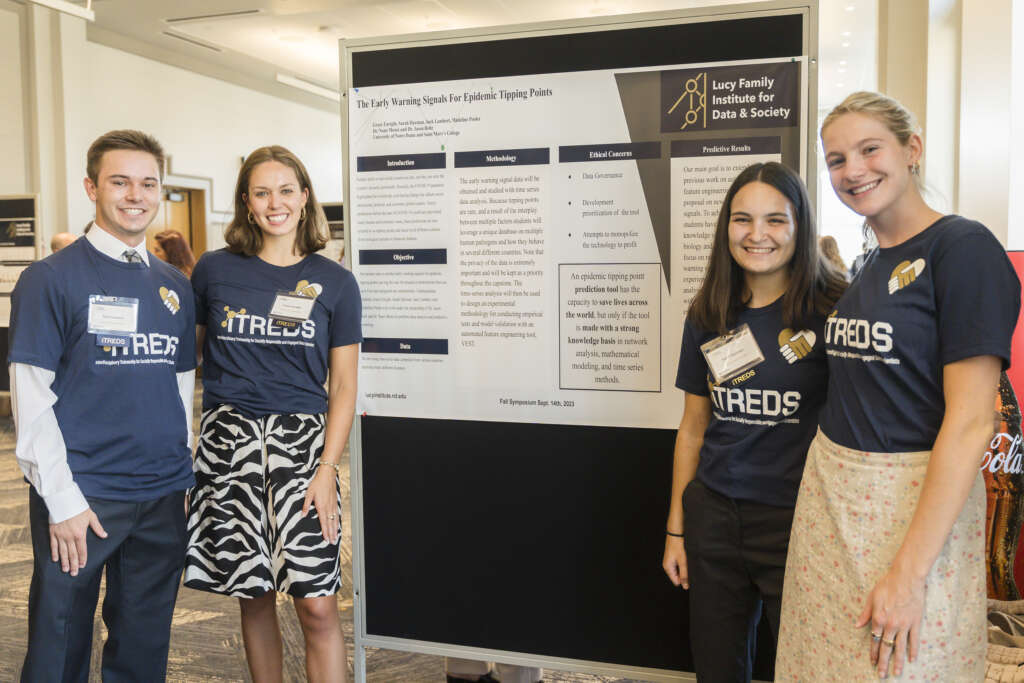
The Early Warning Signals For Epidemic Tipping Points
Team: Grace Enright, Sarah Harman, Jack Lambert and Madeline Pooler
Advisors: Prof. Nuno Moniz and Prof. Jason Rohr
Abstract: Sudden shifts in real-world systems are rare, yet they can alter the system’s dynamic profoundly. Recently, the COVID-19 pandemic highlighted the worldwide, ever-lasting change that affects social, educational, political, and economic global systems. Timely predictions before the start of COVID-19 could have prevented many human and economic losses, these predictions are also referred to as tipping points, and occur in all different systems, from biological systems to financial markets.
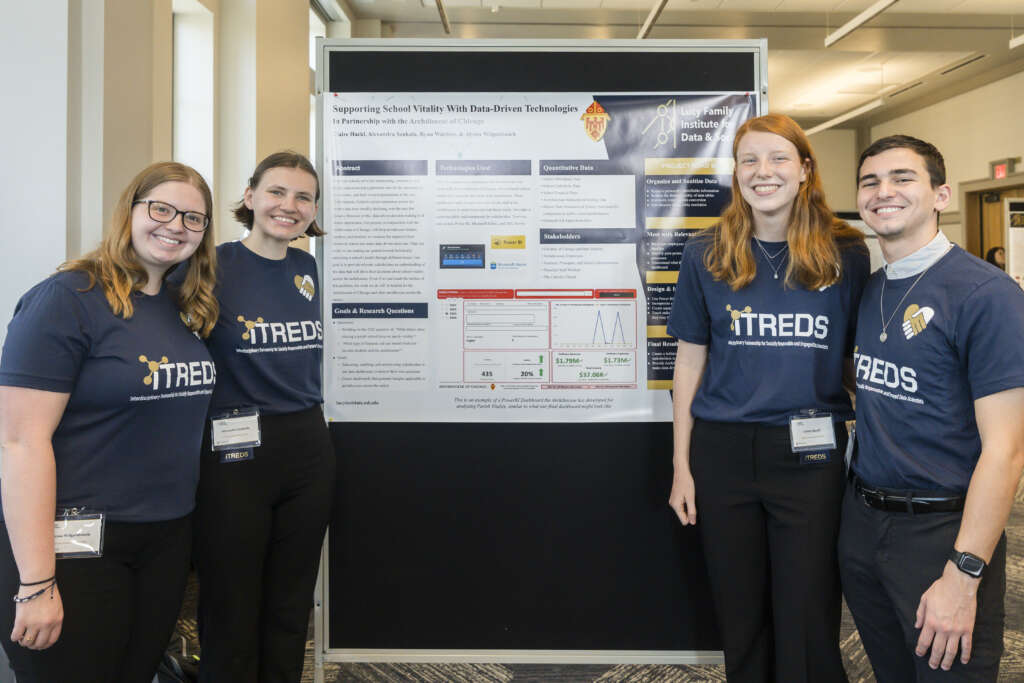
Supporting School Vitality With Data-Driven Technologies
Team: Claire Hackl, Alexandra Szukala, Ryan Wachter, & Alyssa Wilgenbusch
Advisors: Prof. Thomas Mustillo
Collaboration Partners: Sean Murdock, Emily Yeager, Betsy Bohlen, Deacon Gerry Keenan
Abstract: Parochial schools are known for providing quality education to the surrounding community, especially to the underserved, low-income, and hard-to-reach populations of the city. However, Catholic school attendance has been declining across the country for the past few decades. As a result, data-driven decision-making has become essential. This project, in collaboration with the Archdiocese of Chicago, aims to help archdiocese leaders, teachers, and families make data-driven decisions by visualizing the impact of their parochial school. The tools being developed will analyze a school’s health from different perspectives, providing relevant stakeholders with the necessary data to make informed decisions about school vitality across the archdiocese. Our efforts, though limited to addressing the surface of the problem, will prove to be of great assistance to the Archdiocese of Chicago and other archdioceses across the country.
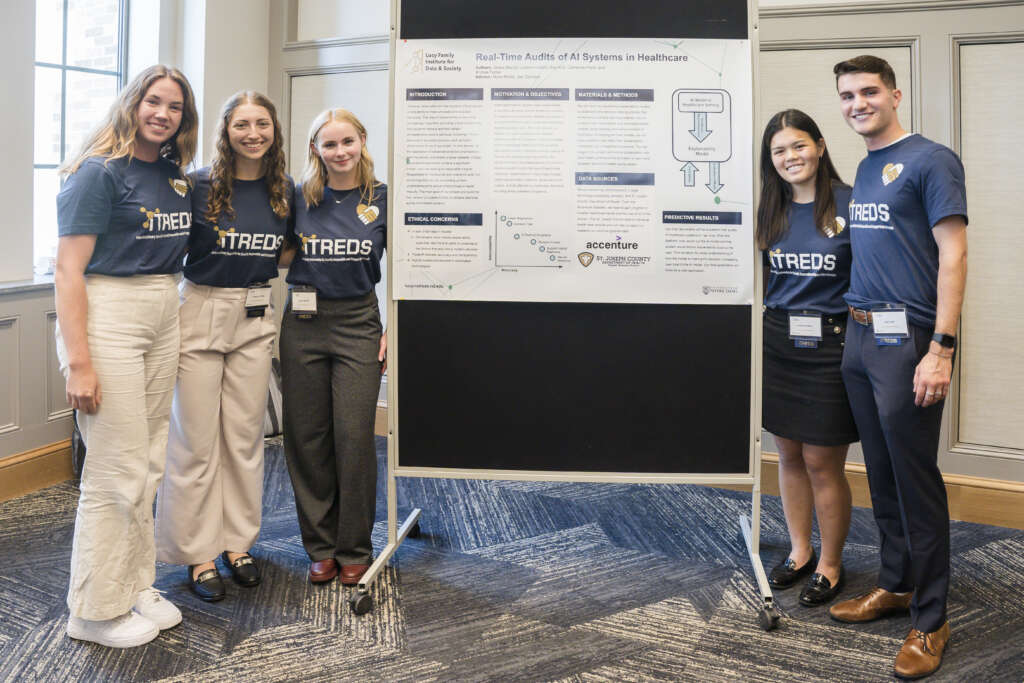
Real-Time Audits of AI Systems in Healthcare
Team: Grace Bezold, Justine Hulbert, Dan Krill, Catherine Pardi and Andrea Turner
Advisors: Prof. Nuno Moniz and Joe Germino
Abstract: Growing media attention has exposed critical issues in artificial intelligence (AI)’s ability to make unbiased and accurate decisions. The idea of explainability is becoming increasingly important, providing critical insights into how systems behave and how certain characteristics lead to particular outcomes. This is essential in sensitive domains, such as health, which is the focus of this project. In this domain, as the application of advanced analytics and machine learning grows, incomplete original datasets or false assumptions are known to have a significant impact, such as leading to inequitable insights. Responsible AI frameworks and coalitions exist, but screening tools do not, preventing us from understanding the actual effect of bias or health inequity. The main goal of this project is to build the first version of a platform that will enable real-time audits of AI-based systems.
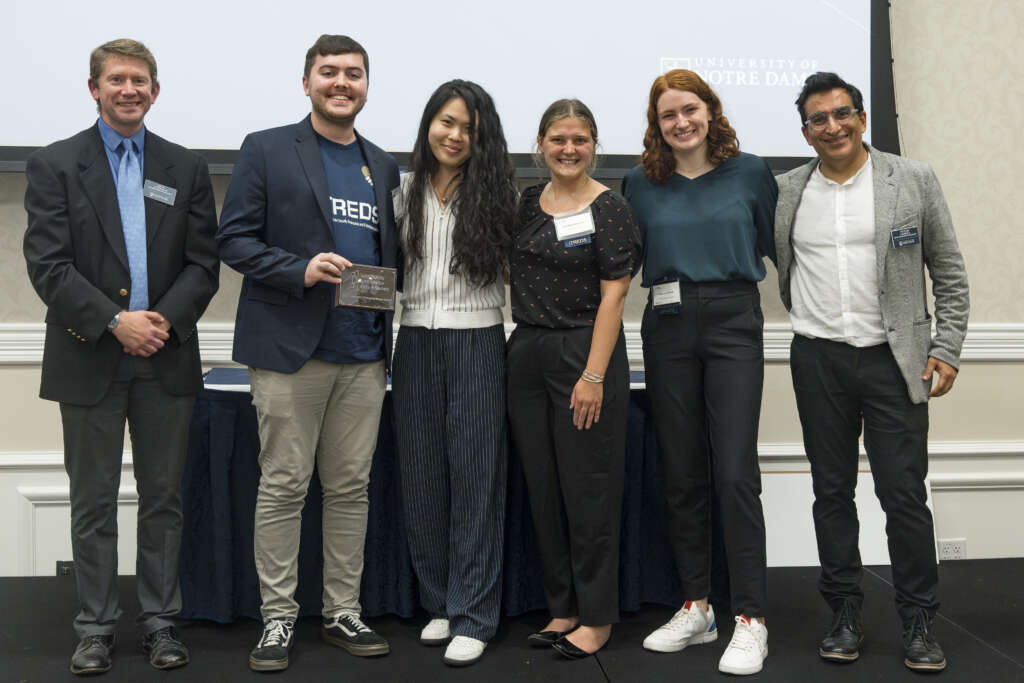
Health Inequities in Minorities: A Framework Based on EquIR
Team: Adam Toland, Catherine Schafer, Elizabeth Bourassa, and Joyce Fu
Advisors: Prof. Angélica García Martínez and Prof. Matthew L. Sisk
Collaboration Partner: Dr. Horacio Marquez-Gonzalez, Hospital Infantil de México Federico Gómez
Abstract: Healthcare access—and the provision thereof—differs across countries, cities, and neighborhoods. This project utilizes data from Mexico’s Hospital Infantil Federico Gómez (Mexico’s National Institute of Pediatrics) to track complications that patient-children develop over the course of their cancer treatment with the intention of establishing an example framework for comparison in other populations. Specifically, the project seeks to investigate any existing parallels between children in two regions with certain similar socio-economic conditions: Mexico’s Hospital Infantil Federico Gómez and South Bend. As part of this process, medical determinants such as one’s medical history, family life, financial support, social and emotional wellbeing, substance use, and access to treatment will be considered.
Award: Best Undergraduate Poster